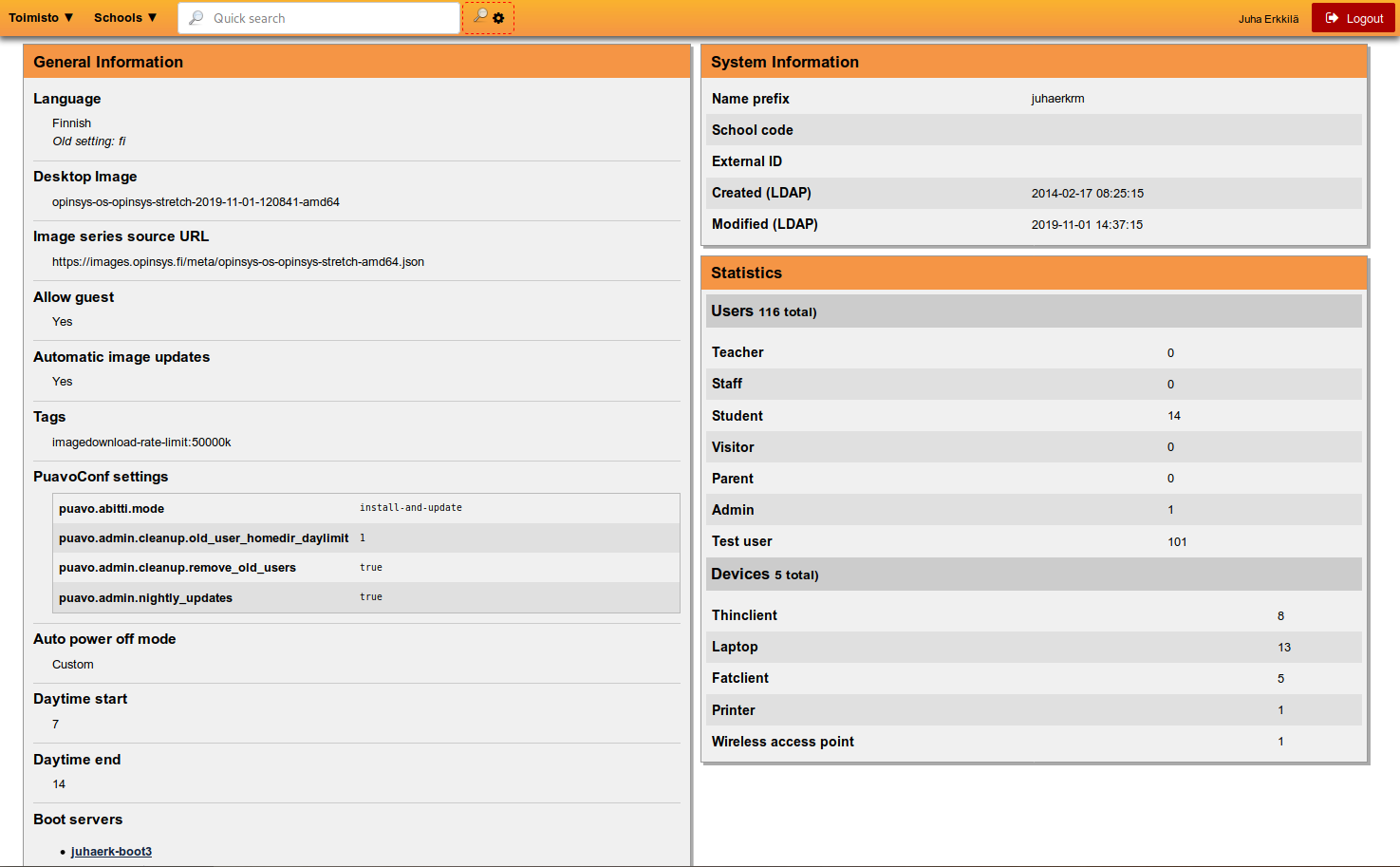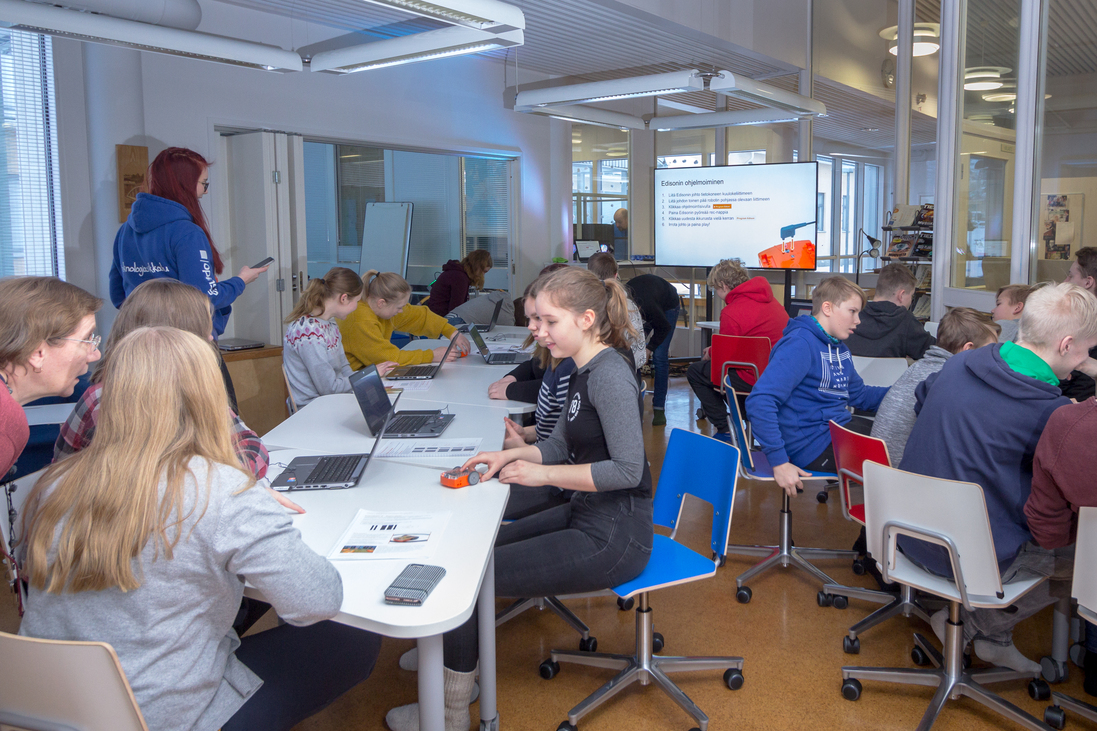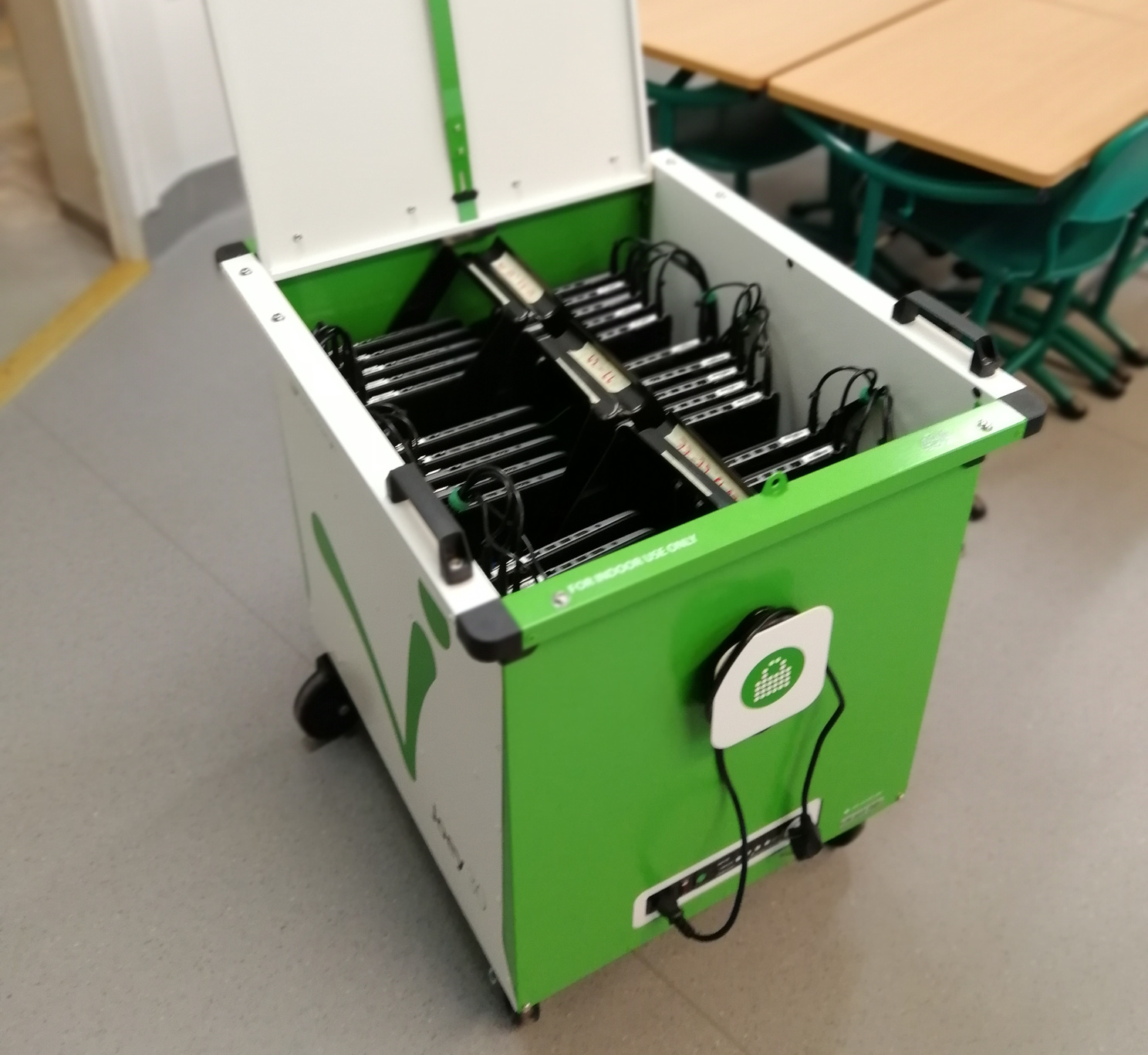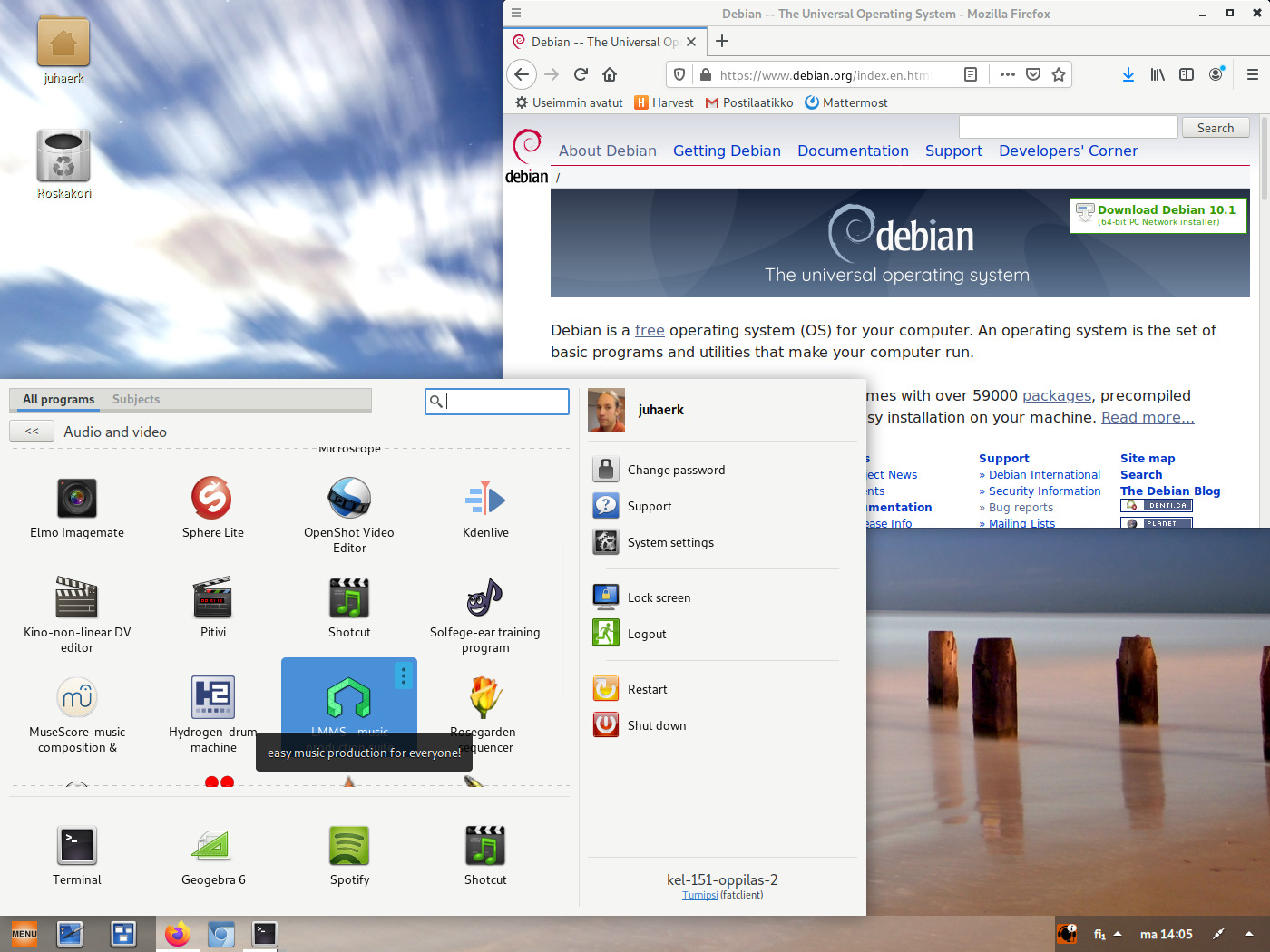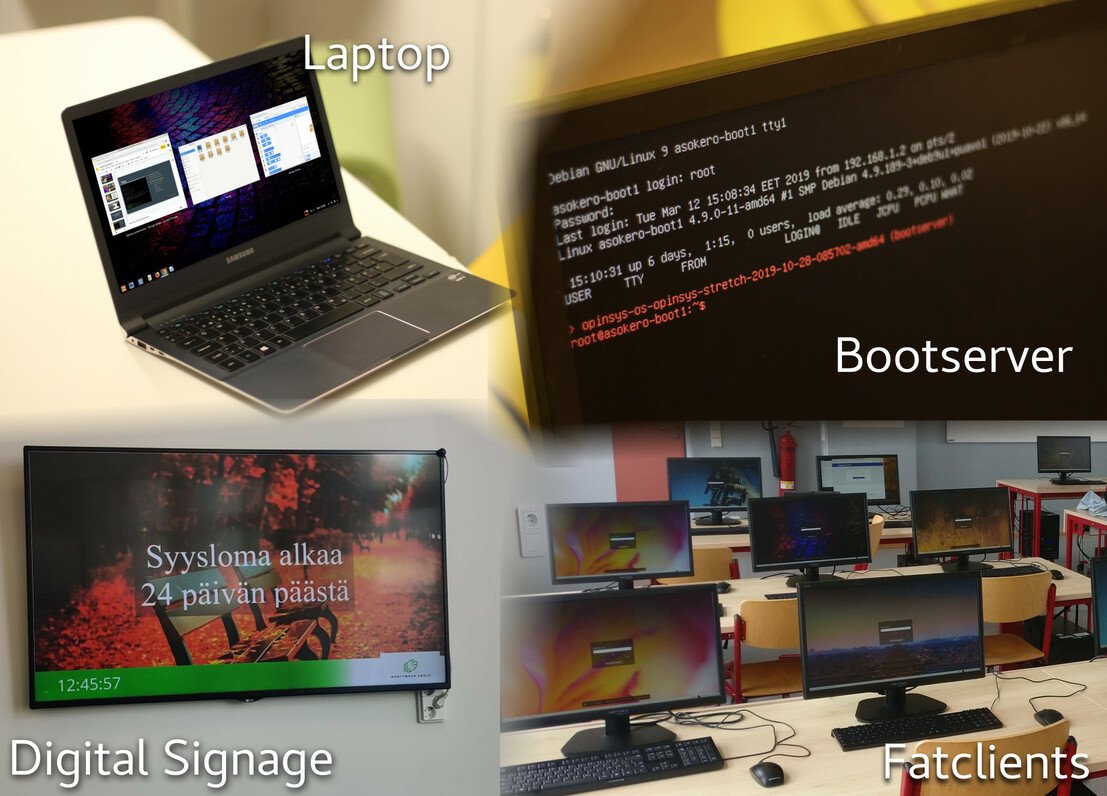Puavo is management software with an operating system
Puavo is a combination of web software (Puavo Web) and a specially configured system (Puavo OS) using Debian GNU/Linux operating system as its base. Puavo Web is built for managing user accounts and devices. Puavo OS is designed for large-scale deployment in primary and secondary schools. The source code for both is free software under GPLv2+ license.

